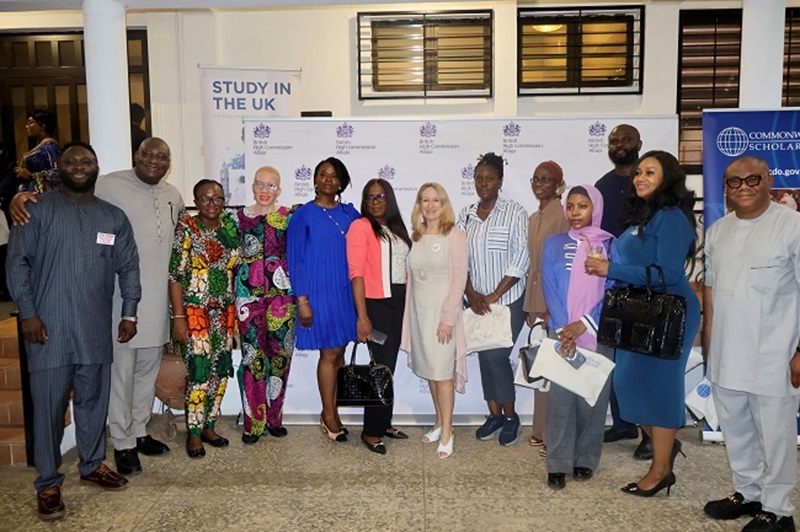Education
Meningitis C: MSF Vaccinates 148,000 People in 7 Days in Nigeria


By Modupe Gbadeyanka
About 148,000 people between the ages of one and 20 have been vaccinated by 25 Doctors Without Borders (MSF) teams with about 850 people per day for seven days.
Thousands of men, women, and children in northern Nigeria have been affected by a meningitis C outbreak, reportedly the largest to hit the country in the past nine years.
Almost six months after the first cases were recorded in Zamfara State, Nigeria’s Ministry of Health (MoH) is still struggling to fight this epidemic in seven states of the country.
MSF has supported the health authorities with surveillance and case management in the most-affected locations since February, when the outbreak was officially declared.
However, the slow reaction system of the country and a global shortage of vaccines have hampered the response.
On April 15, MSF set up a 200-bed treatment centre in Sokoto town, followed by a 20-bed facility in Anka, Zamfara.
In these locations, MSF’s Nigeria Emergency Response Unit (NERU) works intensively to provide free, high-quality medical care and reduce mortality rates as much as possible.
These teams treat challenging cases in a difficult environment. “A few days ago a nine-year-old boy was brought in unconsciousness and with severe meningitis,” recalls Caroline Riefthuis, an MSF nurse in Sokoto. “He received treatment for five days and recovered, but unfortunately we found out that he had become deaf and blind—side effects of severe meningitis.”
This little boy is one of 614 patients treated in Sokoto Mutalah Mohamad Hospital since April, when MSF took over the management of the center from the MoH due to a lack of supplies and qualified staff to run it.
In Anka General Hospital, 137 patients were admitted since the beginning of the outbreak. Most are between five and twenty years old.
Tackling the Outbreak
In addition to the staff working in the treatment centres, eleven MSF surveillance teams visited health facilities to determine the origins of new cases in Sokoto, Zamfara, Yobe, Niger and Kebbi. These visits also allowed MSF to implement additional activities, such as health promotion, to increase community awareness of the signs and symptoms of meningitis and active case finding.
At the end of April, the Nigerian MoH reported 9,646 suspected cases of meningitis C, with a total of 839 deaths since late 2016. And on May 1, MSF was finally able to join a vaccination campaign launched by the health authorities in Sokoto.
An additional campaign with a target population of nearly 130,000 will start later this month in the four most-affected LGAs of Yobe State
Late Response and Insufficient Vaccine Supplies
Although these vaccination campaigns are a crucial step to stop the spread of the disease, MSF has concerns regarding the late response to the crisis in a country where meningitis epidemics are not rare.
“The national early warning system and timely response needs to be strengthened, and the implementation strategy better-defined, to reduce the impact of the outbreak as much as possible,” explains Philip Aruna, MSF Head of Mission in Nigeria.
Even more worrisome is the global shortage of meningitis C vaccine, which contributed to the delayed response and increased mortality rates in Nigeria. “The outbreak is spreading fast and we are concerned because there are not enough vaccines to cover the affected population,” says Aruna. In Sokoto, for example, three million vaccines are required to launch a mass campaign, but only 800,000 were available. This insufficient quantity only allows for a reactive campaign, which requires teams to act fast to prevent the disease from spreading further.
To address these logistical challenges and reduce the mortality rates, MSF insists that treatment centers be decentralized so that all people affected by the disease, even those in remote areas, can access free, quality health care and the right tests to quickly confirm cases and prevent misdiagnoses. It is crucial that adequate prevention measures be put in place to avoid another delayed response when the next meningitis outbreak inevitably occurs.
Education
Appeal Court Orders CBN, ABU Zaria to Pay N2.5bn to 110 Illegally Sacked Workers

By Adedapo Adesanya
The Court of Appeal in Abuja has dismissed the fresh bids by the Central Bank of Nigeria (CBN) and the Ahmadu Bello University (ABU) Zaria to stop the implementation of N2.5 billion judgment debt against the school and in favour of the 110 workers of the University unlawfully sacked in 1996.
In two separate unanimous judgements by a three-member panel of justices, the appellate court ordered the CBN to immediately release N2.5 billion to the former workers of the higher institution of learning without further delay.
In the lead judgments delivered by Justice Okon Abang, the appellate court threatened to impose heavy sanctions on the prime movers of CBN should the apex bank further refuse to release the money kept in its custody since 2018 by ABU, for onward payment to the aggrieved workers.
Justice Abang dismissed the CBN’s claim that the 110 workers unlawfully sacked by ABU in 1996 but ordered reinstated by the National Industrial Court in Abuja, cannot use garnishee proceedings against it to collect the money.
The claims of the apex bank that consent of the Attorney General of the Federation and Minister of Justice (AGF) must first be obtained by the workers before payments can be effected were also dismissed by the Court of Appeal.
The CBN and ABU had, in separate appeals, challenged the implementation of the judgment of the Industrial Court, which ordered ABU to pay the entitlement of the 110 workers, having found that they were unlawfully laid off by the Sole Administrator of the University, General Mamman Kontagora, in 1996.
The two appellants also faulted the use of garnishee proceedings against them by the workers to effect payments.
The two appeals were dismissed for being unmeritorious.
Justice Rakiya Haastrup of the Industrial Court had on January 27, 2022, issued a “garnishee order absolute,” directing the CBN to pay the judgment sum to the workers from ABU’s funds.
Justice Abang held that the workers were right in filing garnishee proceedings against CBN to enforce payments of their entitlement as required by law.
The Court of Appeal admonished the apex bank for wasting public funds to engage lawyers to file a suit to frustrate the payments of the entitlement to the aggrieved workers.
According to the appellate court, the conduct of the CBN in opposing payments of the money was reckless and reprehensible to the workers since the ABU had deposited the money with it for the settlement of the judgment debt.
“In this matter, it is not the duty of the CBN to play the role of the advocate but to implement the court judgment that awarded the money to the workers in the absence of any contrary court order.
“It is also unethical for the lawyer to the CBN to have supported the bank in frustrating the judgment of the Industrial Court. The unfortunate action of the CBN had prolonged the sufferings and hardships of the workers.
“The lawyer ought to have advised the CBN not to play the role of the advocate, no matter how juicy the CBN brief. The action of CBN is cowardice. It took the matter personal against the workers who have been suffering since 2013.
“There is no lawful reason for the CBN to have filed this appeal against the judgment of the Industrial Court since the workers made no claims against the bank.
“The lawyer owes a duty to the court, to the country, and to the 110 workers to see that they are not unjustly punished or denied the fruits of their court victory. He ought to have withdrawn his services if CBN went against his advice. They ended up wasting the valuable judicial time of this Court.
“How can CBN be asking that the order of the court not made against it be vacated when it has been holding the workers’ money since 2018? The situation must not continue. There must be an end to it. The workers deserve the fruit of their labour,” he said.
The Court of Appeal awarded N5 million against CBN and another N5 million against ABU to be paid to the workers as costs of litigation in addition to the N2.5 billion.
Education
British High Commission Lauds 99 Chevening, Commonwealth Scholarship Beneficiaries

By Adedapo Adesanya
The British High Commission has celebrated 99 Nigerians who have recently completed their studies in the United Kingdom through the prestigious Chevening and Commonwealth scholarships, pursuing a wide range of master’s degree, PhD, and fellowship programmes.
In Abuja and Lagos, the commission held Welcome Home ceremonies for the 30 Chevening scholars who have completed their studies, as well as the 69 beneficiaries who make up the Commonwealth scholars and fellows.
Chevening Scholarships are the UK Government’s global scholarship programme, funded by the Foreign, Commonwealth and Development Office (FCDO), partner organisations, and partner universities, while Commonwealth Scholarships are managed by the Commonwealth Scholarship Commission (CSC) in the UK.
At both events, the scholars and fellows shared their academic journeys and experiences, and their preparedness to use the skills and knowledge developed during their studies to contribute to Nigeria’s development. Additionally, they were celebrated for their exceptional academic achievements, received their completion certificates, and were officially inducted into the Chevening and Commonwealth alumni community in Nigeria.
Speaking at the reception, the British Deputy High Commissioner, Mrs Gill Lever (OBE), said, “We take great pride in welcoming back our Commonwealth and Chevening Scholars. Congratulations to every one of them for completing their studies, many with distinctions. I’m so happy that talented Nigerians have had the opportunity to study in the UK, returning with additional knowledge and skills to make a positive difference in their home country. I encourage them to aim for excellence in their future endeavours. I know they will be great ambassadors for the UK in Nigeria and make the most of the networking and knowledge sharing that being a Commonwealth or Chevening scholar presents. Keep in touch, everyone!”
British Council was represented at the welcome event by Mr Chikodi Onyemerela, Director of Programmes, British Council Nigeria. During his remarks, Chikodi congratulated the scholars for completing their master’s and PhD programmes in the UK.
He urged the scholars to be good Ambassadors of their institutions in Nigeria and urged them to apply the knowledge, skills and network that they have acquired in the UK to address challenges facing Nigeria in various sectors while maintaining ties with their UK institutions.
A Chevening Scholar, Nankur Pontip Ramdur, who studied Terrorism, International Crime and Global Security at Coventry University, UK, said, “I understand that peace and security are at the heart of every nation’s development and success; hence, I look forward to contributing to a safer Nigeria. I plan to continue outreach to schools and communities with my team, teaching responses and safe practices regarding sexual and gender-based violence. I am also currently writing a book to broaden the impact of this initiative in Nigeria and subsequently across the globe. I have so much more to meaningfully contribute to my country, and I am glad Chevening has propelled me towards achieving my dreams!”
A Commonwealth Scholar, Chimdi Ekwueme, who studied Health Policy, Planning and Finance at the London School of Hygiene and Tropical Medicine, UK, said, “Studying in the UK has deepened my Nigerian perspective by allowing me to situate my local experience within wider international conversations and gaining practical insights I can apply at home.”
Education
Edtech Platform Aahbibi Rebrands as Hallos, Unveils New Self-Paced Courses

By Adedapo Adesanya
An education technology-based platform known as Aahbibi has officially rebranded as Hallos, also launching more than 5,000 self-paced courses aimed at strengthening knowledge transfer, accelerating skill acquisition, and improving literacy among everyday learners across Africa and beyond.
According to a statement on Thursday, the new identity signals a renewed commitment to building an inclusive, creator-driven learning ecosystem that equips individuals with practical, relevant skills for today’s economy.
Positioned as a creator-economy engine, Hallos brings together education, entertainment, and commerce within a single digital platform. It integrates live classes hosted by creators, social commerce and merchandising, podcast-driven learning, and quiz-based gamification. This blended approach is designed to deepen understanding, boost engagement, and promote fast, practical learning experiences for users at every level.
With creators already active on the platform from Kenya, Ghana, Côte d’Ivoire, Lagos, the United States, and Dubai, Hallos is cultivating a truly global community rooted in African creativity and innovation. Its expanding international network offers diverse perspectives, practical insights, and culturally relevant content that resonates with learners across regions.
Beyond online learning, Hallos is also emerging as a creative economy powerhouse, driving engagement through physical and hybrid experiences.
Upcoming initiatives include the Learning247 Creator Summit at the University of Nigeria, Enugu Campus (UNEC), and a major exhibition at the Enugu Technology Festival. These events are designed to connect creators, learners, and industry stakeholders, fostering collaboration, showcasing innovation, and expanding opportunities in the creative and digital sectors.
At the heart of Hallos’ mission is a four-pillar strategy focused on long-term social and economic impact. The platform is dedicated to supporting women in technology, advancing massive open connected education, and positioning Africa as a global production hub through market-ready skills development. By empowering individuals with practical knowledge, Hallos aims to strengthen the labour market and unlock new economic opportunities across the continent.
Hallos is also introducing a social impact course that encourages collective participation in Africa’s transformation. The initiative invites individuals, creators, and organisations to help reshape narratives, broaden opportunities, and drive the continent toward greater prosperity.
With its new brand identity and expanded course catalogue, Hallos says it is charting a bold future for learning — one where creators lead, communities thrive, and practical knowledge is accessible to all.
-

 Feature/OPED6 years ago
Feature/OPED6 years agoDavos was Different this year
-
Travel/Tourism9 years ago
Lagos Seals Western Lodge Hotel In Ikorodu
-

 Showbiz3 years ago
Showbiz3 years agoEstranged Lover Releases Videos of Empress Njamah Bathing
-

 Banking8 years ago
Banking8 years agoSort Codes of GTBank Branches in Nigeria
-

 Economy3 years ago
Economy3 years agoSubsidy Removal: CNG at N130 Per Litre Cheaper Than Petrol—IPMAN
-

 Banking3 years ago
Banking3 years agoSort Codes of UBA Branches in Nigeria
-

 Banking3 years ago
Banking3 years agoFirst Bank Announces Planned Downtime
-

 Sports3 years ago
Sports3 years agoHighest Paid Nigerian Footballer – How Much Do Nigerian Footballers Earn












